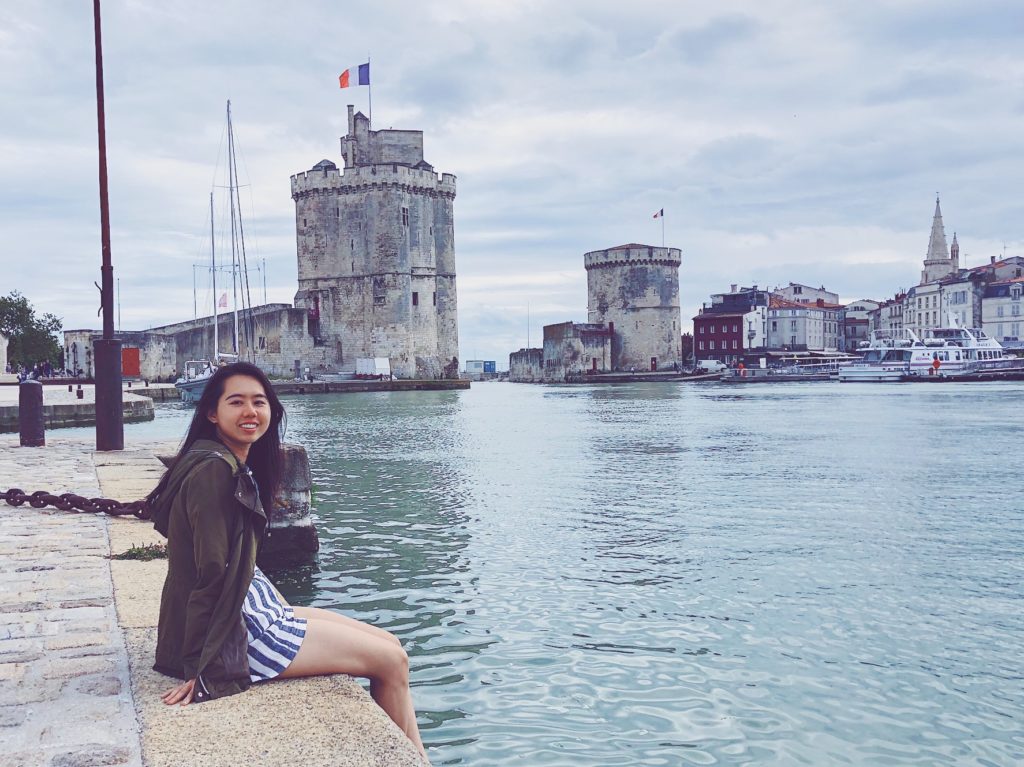Airplanes smell funny. It was always the first thing my mom would remark as we stepped onto a plane, and when I began flying alone, it was the typical response to the question: “How was your flight?” I would unfailingly tell her all about how the airplane was cold and smelled pretty peculiar.
This time was different, though. I was going to France. I was going to France! It would be my first time in Europe, my first time in a country where a year ago I wouldn’t even be able to order myself a coffee in the native tongue. This time, I didn’t even notice the relentless blow of the air-conditioning or the stench of flying in a heavily crowded tin can.
I remember mumbling a quick “Bonjour” to the women who sat down next to me. They smiled politely and began an un-be-live-ab-ly fast-paced conversation with each other. Suddenly, words failed me. My involuntary silence wasn’t caused by anything as simple as worrying about how to conjugate a certain verb or fretting over using the formal greeting vous instead of the more familiar tu, but a full out, jaw-clenching fear of making a mistake.
French classes at Notre Dame had always been fun and, as a beginner, I learned to not be afraid of committing blunders. There were many instances where I would yell out a wrong answer or take 2 minutes to form a phrase that should have taken me 20 seconds, yet now my mouth could not find the courage to move. It dawned on me that I was not speaking with my encouraging professor or with empathetic classmates, I was speaking to French natives who read books in French to their kids every night, books I had only began reading a couple of months prior.
It’s funny, before my flight I had rehearsed a couple of phrases in French, repeating them over and over again in my mind as a way to reassure myself: I can do this. I am ready to spend two months outside of my comfort zone in a place I have only dreamed of.
Those introductory phrases that let (hopefully patient) strangers know that I was a student at an American University trying to improve her French seemed outlandish now. I spent the entire flight trying to embolden the confident smile I used to wear so naturally. Je suis prêt. Je suis prêt. (I am ready.) I kept echoing this phrase in a feeble attempt to convince myself that I hadn’t actually bitten off more than I could chew.
Never in my life had I felt my knees so much as tremble on an airplane. I’d foolishly giggle as my mother prayed the rosary over and over again on flights. Now, I felt a different kind of fear creeping in; the fear of failure.
Pretending to sleep was my only solace on this seemingly never-ending flight. With lips and eyes closed shut I discretely listened in on the women’s conversation. Don’t worry, I didn’t even have a chance to invade their privacy because I barely understood them. Words would fall out of their mouths so nonchalantly it seemed an affront to my deliberately chosen words. Their quick pace seemed to laugh at my sluggish one. All I truly remember from their conversation is the crushing feeling of being overwhelmed. Je suis prêt. Je suis prêt. I kept telling myself.
I was out of my league and shocked to discover it.
Having successfully completed two semesters of intensive French classes at ND, I felt confident I would at the very least be able to carry out simple conversations and interact relatively well with the locals. I knew I wasn’t 100% fluent but the stark contrast between my draining conversations with friends in French to this casual, easy-flowing chat scared me. My borderline arrogant outlook on my French fluency plummeted and a once confident, albeit slow, speaker was now scared to ask the flight attendant for a bottle of water– a vocabulary term I’m pretty sure we covered in the first week of my Beginning French class.
After shakily walking out of the plane I faced an amicable grin and a cheerful “Bonjour. Ça va?” My already shaken heart began thumping even harder; this was the absolute worst possible scenario: a curious Frenchman! His approachability was rendered to belligerence as I was certain I would make a fool out of myself. Although my mind tried to reassure me this was a ridiculous exaggeration (which yes, yes it was), my heart didn’t seem to understand and was ready to jump out of my mouth so as to prohibit me from voicing the broken French I had been so proud of a mere week before. I hastily inquired where the bus station was- it was one of the rehearsed phrases that had been bouncing around my brain for the full 11 hours of my flight. It would be the best I could do, I decided. The man chuckled to himself and told me the directions to where I needed to go. He told me the directions in English. IN ENGLISH! After the well-meaning interaction, I became decidedly quiet.
The entire bus and subsequent train ride to Tours were spent in a state of fearful timidity. I am pretty sure I have never spoken less in a period of 24 hours.
 The only photo I managed to take on my way to Tours.
The only photo I managed to take on my way to Tours.
Having arrived at the train station I saw my host-mom-to-be waiting for me with a piece of cardboard with my name written on it. I’m not sure if it was her warm smile or simply the familiarity of my own name written in Sharpie that reassured me, but I suddenly felt safer.
After a brief conversation, one where my host mom consciously enunciated every single word and didn’t seem to notice the time that passed between one phrase I spoke and the next, the words I had been repeating to myself finally seemed true: Je suis prêt. (I am ready.)
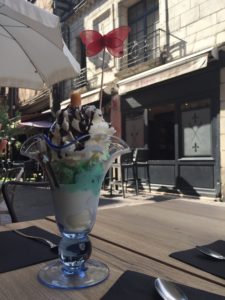


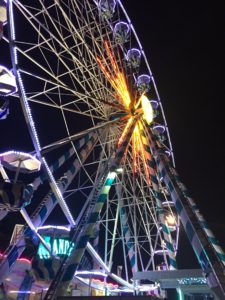
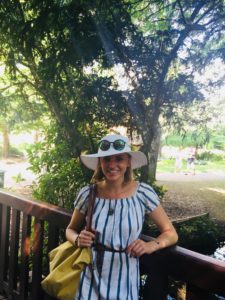

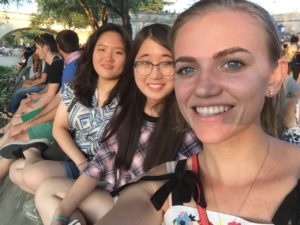
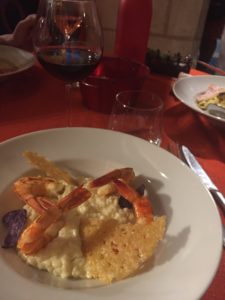
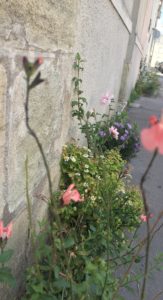
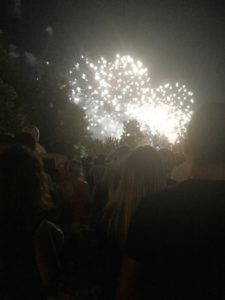
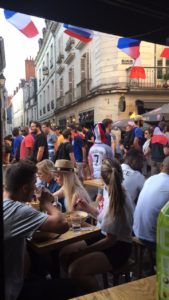
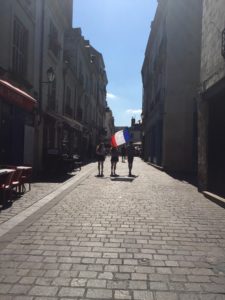
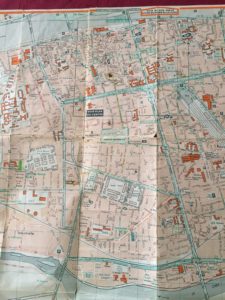
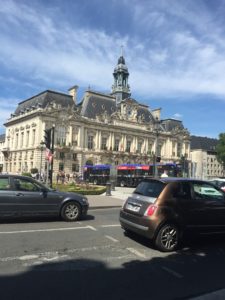
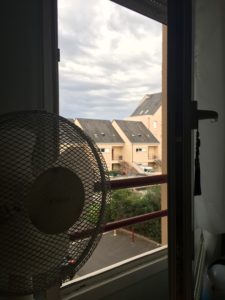
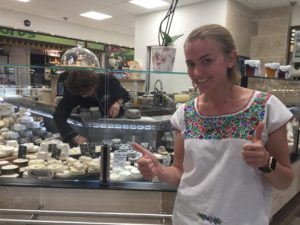


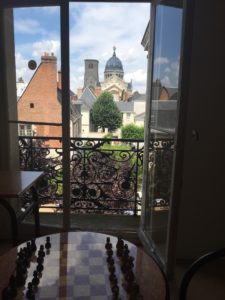

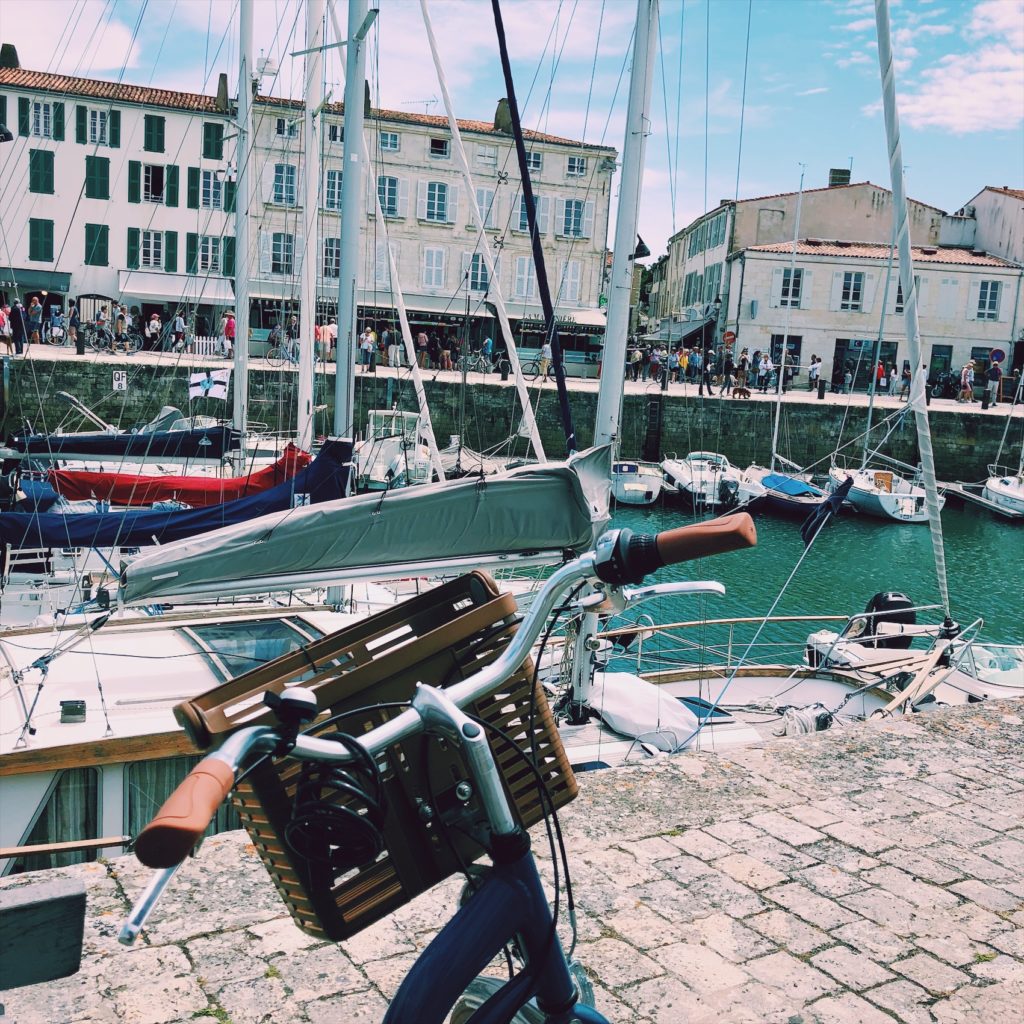
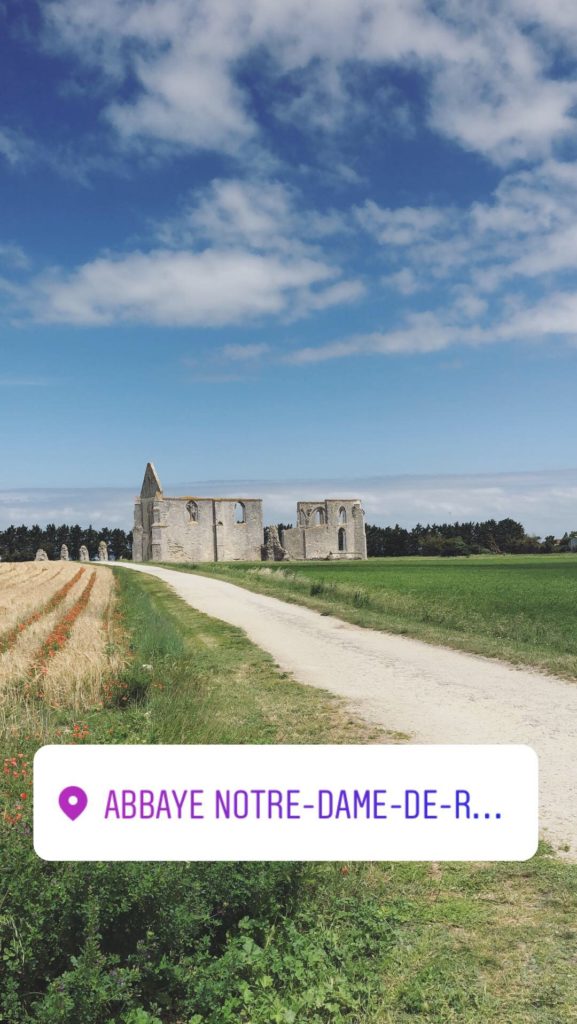
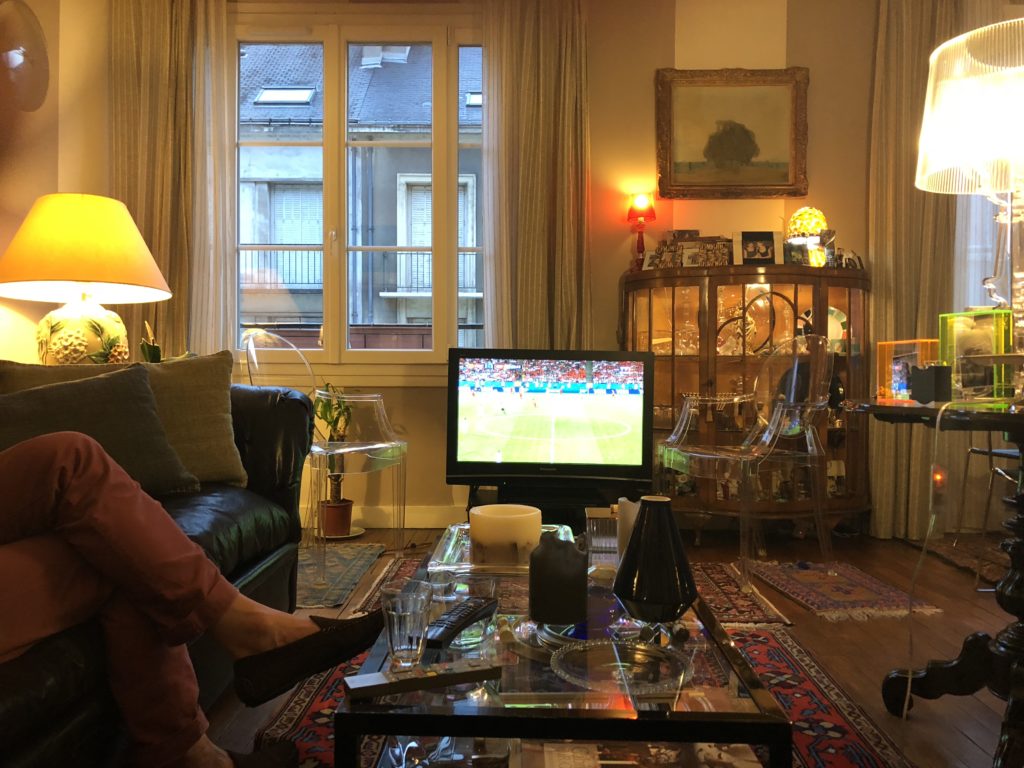
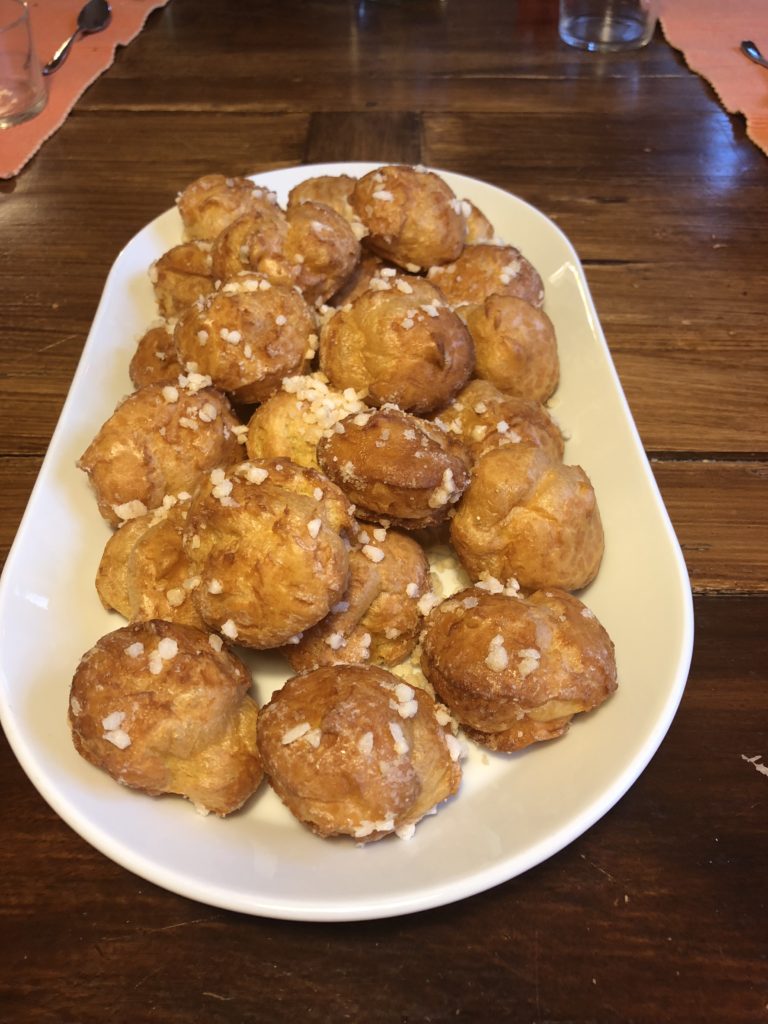 whether her grandparents or parents had been involved in the World Wars– and what a conversation it turned into– with the German occupation of much of France, the tension between the French civilians themselves, their resistance to war, the denouncements and underground effort to save the Jews and
whether her grandparents or parents had been involved in the World Wars– and what a conversation it turned into– with the German occupation of much of France, the tension between the French civilians themselves, their resistance to war, the denouncements and underground effort to save the Jews and 